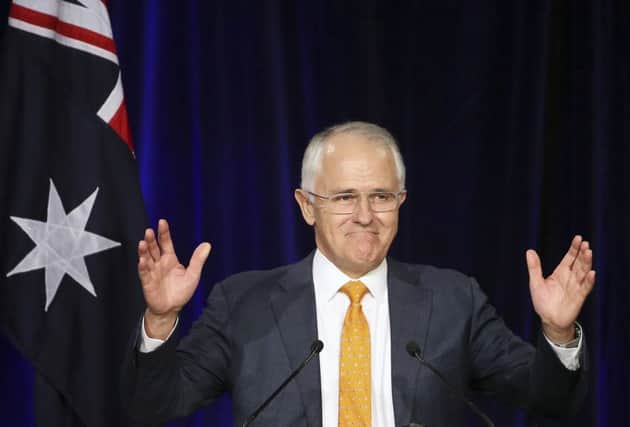Australia's Liberal coalition seems set to hang on to power


Prime minister Malcolm Turnbull received another boost when a leading independent politician agreed to support the ruling party if it does not win a majority.
Mr Turnbull travelled to Brisbane for talks with maverick politician Bob Katter for talks about supporting a minority government if the count from the weekend election ended with only Australia’s third hung parliament in more than a century.
Advertisement
Hide AdAdvertisement
Hide Ad“I am very confident, very confident indeed that we will form... a majority government in our own right, but I am, of course, talking to the cross-benchers as well,” Mr Turnbull said. “But so far the counting trends are very positive from our point of view.”
After the meeting Mr Katter said he had agreed to support the government if it fell short of a majority.
“I do so with no great enthusiasm,” he said. “I will maintain my right to change at any point of time in the future.”
He said he agreed to support the government because he did not believe the opposition centre-left Labor Party could form a minority government and he did not want to force Australians to go back to the polls.
The uncertainty surrounding the election prompted rating agency Standard & Poor’s to downgrade Australia’s coveted AAA credit rating from “stable” to “negative.”
The agency said Australia needs “more forceful fiscal policy decisions” to reign in debt and believes such tough measures could be postponed by the new parliament.
Mr Turnbull said the credit rating decision was a reminder that tackling the deficit “must be a very high priority” for the next parliament.
He described his discussion with Mr Katter “very good and constructive.”
Advertisement
Hide AdAdvertisement
Hide AdMr Turnbull’s Liberal Party-led coalition needs at least a 76 seats for a majority in the House of Representatives, where it had controlled 90 seats before the election.
The Australian Electoral Commission put the coalition ahead in 74 seats, Labor in 71, and the minor parties and independents in five. Mail-in and absentee votes that are still being counted days after Saturday’s vote are favouring the conservatives.